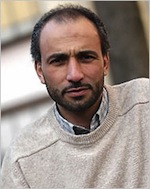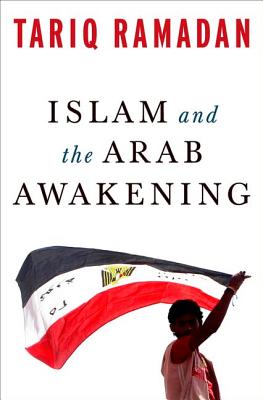 Starting in Tunisia in December 2010, Arab Spring has changed the political face of a broad swath of countries. How and why did these revolts come about—and, more important, what do they mean for the future? Ramadan, professor of Islamic Studies at Oxford and President of the European Muslim Network, brings his profound knowledge of Islam to bear on questions of religion and civil society.
Starting in Tunisia in December 2010, Arab Spring has changed the political face of a broad swath of countries. How and why did these revolts come about—and, more important, what do they mean for the future? Ramadan, professor of Islamic Studies at Oxford and President of the European Muslim Network, brings his profound knowledge of Islam to bear on questions of religion and civil society.
One of the most important developments in the modern history of the Middle East, the so-called Arab Spring began in Tunisia in December 2010, bringing down dictators, sparking a civil war in Libya, and igniting a bloody uprising in Syria. Its long-term repercussions in Egypt and elsewhere remain unclear. Now one of the world’s leading Islamic thinkers examines and explains it, in this searching, provocative, and necessary book.
Time Magazine named Tariq Ramadan one of the most important innovators of the twenty-first century. A Muslim intellectual and prolific author, he has won global renown for his reflections on Islam and the contemporary challenges in both the Muslim majority societies and the West. In Islam and theArab Awakening, he explores the uprisings, offering rare insight into their origin, significance, and possible futures. As early as 2003, he writes, there had been talk of democratization in the Middle East and North Africa. The U.S. government and private organizations set up networks and provided training for young leaders, especially in the use of the Internet and social media, and the West abandoned its unconditional support of authoritarian governments. But the West did not create the uprisings. Indeed, one lesson Ramadan presents is that these mass movements and their consequences cannot be totally controlled. Something irreversible has taken place: dictators have been overthrown without weapons. But, he writes, democratic processes are only beginning to emerge, and unanswered questions remain. What role will religion play? How should Islamic principles and goals be rethought? Can a sterile, polarizing debate between Islamism and secularism be avoided?
Avoiding both naive confidence and conspiratorial paranoia, Ramadan voices a tentative optimism. If a true civil society can be established, he argues, this moment’s fragile hope will live.















